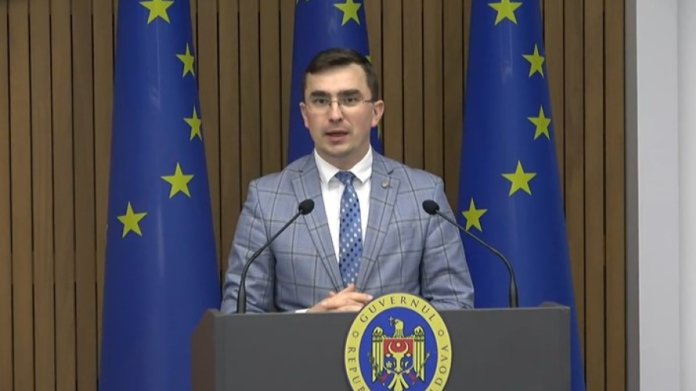Interconnection to the Romanian gas supply system, through the Iasi-Chisinau gas pipeline and to the European ENTSO-E electricity system, helped the Republic of Moldova to overcome the most serious energy crises, State Secretary Constantin Borosan emphasized, broadcast on Sunday, February 19 current, Radio Chisinau with reference to the Commission for energy security of the Euronest Parliamentary Assembly which is held in Chisinau.
According to the Secretary of State, the challenges in the energy sector in the last year and a half show that we need to accelerate the transition to green energy, with greater speed, with more effort, and the Government and Parliament of the Republic of Moldova are engaged in this direction.
“Moldova has had to face several energy crises since October 2021, when it was the first country affected by Gazprom’s unilateral decision to limit gas supplies, when we were procuring gas from a single source, through a single route. But since then, since October 2021, the gas supply of the Republic of Moldova has diversified significantly, as well as electricity. This showed us the urgent need for interconnection in both directions and electricity and gas. The investments made in the past and the decisions taken then helped us overcome the crises we faced”.
Constantin Borosan emphasized that, thanks to the interconnection to the Romanian and European energy system, the Republic of Moldova was able to face the crises in this field, provoked by Russia by limiting gas supplies and bombing the Ukrainian infrastructure: “The interconnection to the Iasi-Chisinau gas pipeline helped to maintain stable energy system. Another example is the electrical interconnection we have with Romania, and the electrical synchronization in March also helped us to diversify resources and maintain the stability of the system”.
The Secretary of State also appreciated the importance of the interconnection line with Romania, Isaccea-Vulcănești, for the stability of the energy system and emphasized that we also need other interconnections, in the Northern area, Balti-Suceava. This is a priority for the Republic of Moldova, it is a strategic project of common interest.
FOR THE MOST IMPORTANT NEWS, SUBSCRIBE TO OUR TELEGRAM CHANNEL!
“In order to move faster, we agreed with the European financial institutions with which the Republic of Moldova cooperates, the EIB, the EBRD, the EU, that the funds for the connection be redirected to the construction of this Balti-Suceava connection. We do not have time to wait, we must move faster to strengthen our energy security. At the same time, regarding the extension of the line from the South, Isaccea-Vulcănești, we advanced with the construction from Vulcănești to Chişinău, which will reduce our dependence and vulnerability on the Russian company Inter RAO, on the left of the Dniester, in Transnistria, and which represents a weak element in our electrical system”.
Additionally, it is necessary to create other connection lines between the Republic of Moldova with the Ukrainian and Romanian systems, which will contribute to the flexibility of the energy system and regional security, State Secretary Constantin Borosan also emphasized.
MEP Rasa Jukneviciene, president of the committee for energy security of the Euronest Parliamentary Assembly, said that the Russian invasion of Ukraine changed the energy map of Europe. The Russian aggression hastened the interconnection of Ukraine and the Republic of Moldova to the European system, last March, which was a very important step for the two states. Currently, this interconnection allows receiving emergency electricity from the EU when Ukraine’s infrastructure is subjected to the most barbaric Russian attacks.
The MEP from Lithuania emphasized that energy independence from Russia was her country’s most important priority: “In 2008, when I was in the Government, in 2008, our country’s priority was energy independence, then we started the LNG terminal project. We have alerted many countries to the danger of Russia using energy as a weapon. Currently, the EU is moving very quickly to solve these problems, and we are willing to do so together with our Eastern European partners.”
The Parliament of the Republic of Moldova is hosting the 10th ordinary session of the Euronest Parliamentary Assembly until February 22.


